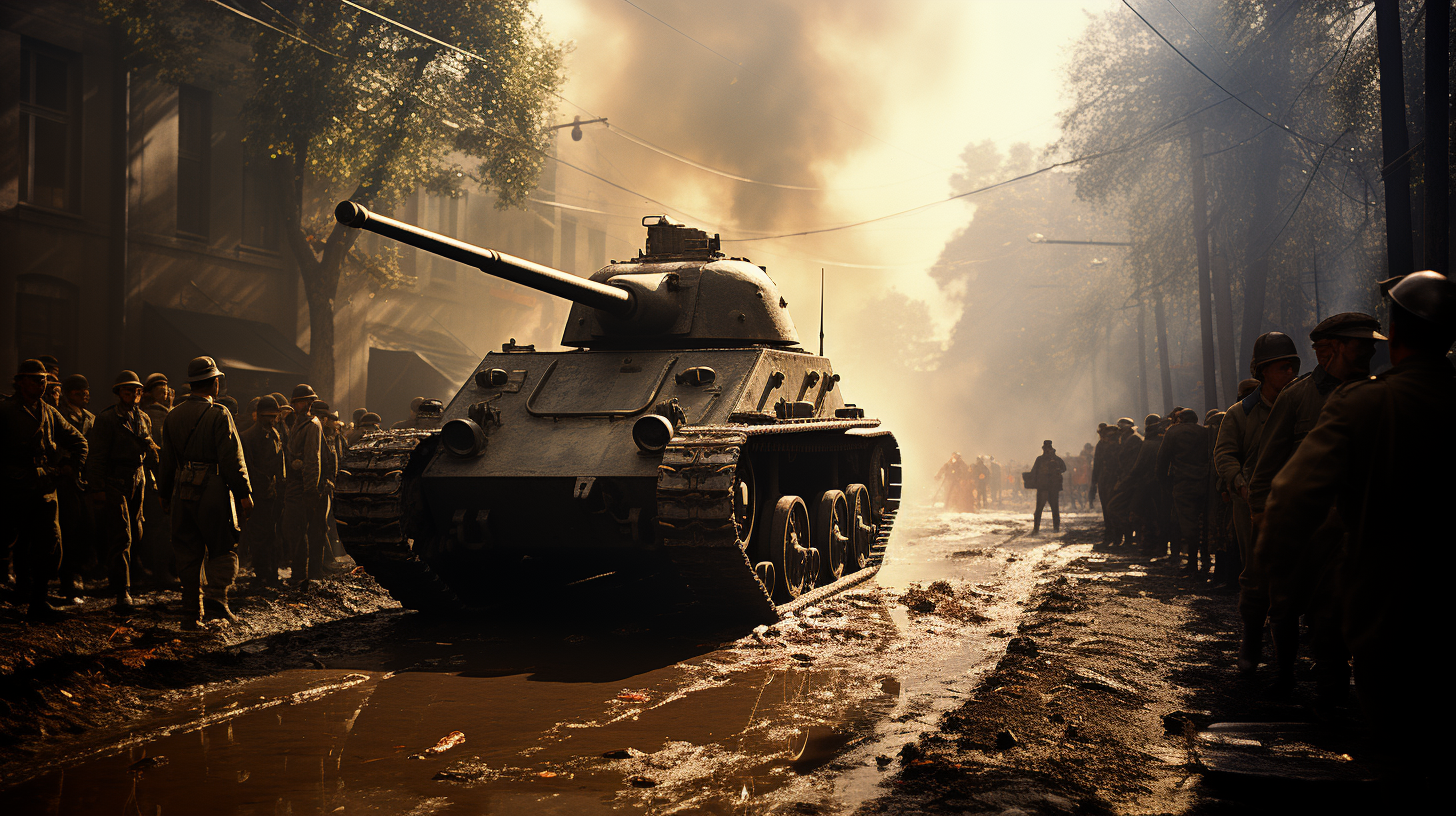
George S. Patton

George S. Patton
11/11/1885 — 12/21/1945
RIP
In the heart of Heidelberg, Germany, the world bid farewell to an extraordinary military leader, General George S. Patton, the revered commander of the U.S. 3rd Army. His life was unexpectedly cut short not by the throes of battle, but by a sudden car accident. At 60, this descendant of a proud lineage of military men left an indelible mark on history.
Patton's remarkable journey began at the prestigious West Point Military Academy, from which he graduated in 1909. His competitive spirit shone early when he represented the United States in the 1912 Olympics, becoming the first American participant in the pentathlon. Although he didn't win a medal, his determination was unmistakable.
A fervent believer in the power of tank warfare, Patton's military career was marked by his visionary service in the Tank Corps during World War I. As commander of the U.S. 7th Army during World War II, he showcased his strategic brilliance by capturing Palermo, Sicily, in 1943.
Patton's audacity and tactical genius were vividly displayed during the 1944 Battle of the Bulge. Executing an unorthodox 90-degree pivot with his 3rd Army forces, he swiftly relieved the besieged Allied defenders of Bastogne, Belgium. His boldness became legendary.
However, Patton's outspoken nature sometimes led to controversy, such as when he publicly berated a soldier suffering from "shell shock.” Despite this, his unparalleled leadership led General Dwight Eisenhower and General George Marshall to stand by him.
Patton's strategic mastery was pivotal in the breakout from Normandy with Operation Cobra. His 3rd Army swept through France, provided crucial relief at Bastogne, and turned the tide against the German offensive. By March 1945, they had surged through southern Germany into Czechoslovakia.
While Patton excelled in military strategy, diplomacy was not his strong suit. His criticism of the denazification process in Germany post-war led to his removal as U.S. commander in Bavaria by Eisenhower. Tragically, in December 1945, Patton was involved in a car accident that led to his untimely death.
In the wake of his passing, his wife Beatrice faced a poignant decision regarding his final resting place. Despite offers to have him buried in their Massachusetts home or even in Napoleon's tomb in France, she chose the American Cemetery in Hamm, Luxembourg. There, among the soldiers of Patton's Third Army who had fallen during the Battle of the Bulge, she knew her husband would want to rest. "Of course," she declared, "he should be buried here. Why didn’t I think of it? I know George would want to lie beside the men of his Army who have fallen."
And so, General George S. Patton was laid to rest, his legacy forever intertwined with the brave men he led and the battles they fought together. His story remains a testament to the relentless spirit and unwavering dedication of one of history's most formidable military leaders.

